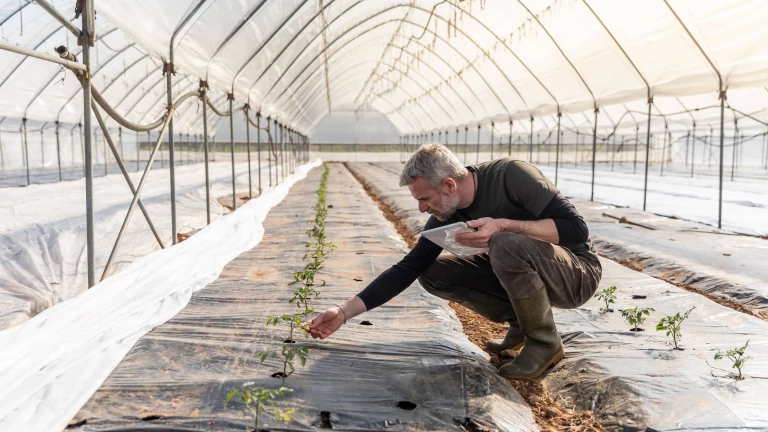The shock waves of 2022 underscored the fragility of the global food system. Just when it seemed we were making progress against the pandemic, geopolitical conflict strained supply chains even further and sent commodity, fertilizer, and energy prices soaring. Floods, droughts, and early frosts exacerbated food shortages, highlighting the urgency of addressing agriculture’s vulnerability to climate change.
Beneath all this gloom, however, a growing pack of innovators has been steadily paving the way for a more secure and sustainable food system. They’re developing promising solutions to some of agriculture’s most complex challenges—and starting to attract the capital and market acceptance needed to scale them up and make them commercially viable.
Take synthetic fertilizers. For over a century, we have relied on the Haber-Bosch process to produce nitrogen fertilizers to feed the world. The problems are that it’s exorbitantly expensive and requires massive amounts of energy—not only to power the plants but also as a critical raw material input. It’s estimated that synthetic fertilizer production alone consumes 2% of the world’s energy supply.
Synthetic fertilizers are surprisingly inefficient: when applied to soil, around half washes off, contaminating water sources and disrupting natural ecosystems. Two innovators are addressing the problem with different approaches.
The recent spike in energy prices has caused a wave of fertilizer plants in Europe to shut down or significantly reduce operations, emphasizing the urgent need for a more resilient solution. Synthetic fertilizer is surprisingly inefficient: when applied to soil, around half of it washes off, contaminating water sources and disrupting natural ecosystems. Two innovators—Pivot Bio and UNDO— are addressing the problem with different approaches.
Pivot Bio uses gene-editing techniques to engineer microbes that enable cereal crops to manage their own nitrogen fixation. The microbes transform nitrogen from the air into ammonia and therefore produce their own nutrients. So instead of relying on massive industrial plants, you essentially create many micro-factories in the soil. Many farmers use Pivot Bio’s products because they’re cheaper than synthetic fertilizers, better for their land, and produce more reliable yields. In 2022, Pivot Bio reported that its annual revenue exceeded $50 million and that its product has been applied to 3 million acres of crops with plans to rapidly scale up.
UNDO is leveraging enhanced rock weathering to permanently remove more than a gigatonne of CO₂ by 2030. The technique involves spreading crushed basalt rock, which reacts with CO₂ in rainwater and permanently stores it in mineral form. UNDO acquires basalt rock, a byproduct of the mining and quarrying industry, and spreads it across agricultural land. The process has a fantastic co-benefit as an effective soil enhancer, improving soil health and providing essential nutrients to crops. UNDO’s business model is clever: it provides the basalt to farmers and collects data on the carbon sequestered in their fields. UNDO then creates high-quality carbon credits that it sells to climate-conscious businesses and individuals to offset their carbon footprints.
Other innovators are developing ways for farmers to adapt to increasingly volatile weather caused by climate change. One problem is that even though we have great technology for predicting weather, forecasts in parts of the world are seriously inaccurate due to blind spots and limited satellite coverage. That makes it difficult and more expensive for farmers to feed a growing global population
The Sustainable Advantage: Build lasting impact through sustainability
Tomorrow.io, a climate adaptation platform powered by weather intelligence, has developed digital tools that can help businesses and communities translate hyper-accurate weather forecasts into day-to-day operational decisions. The company believes that climate risk needs to be proactively managed in the same way as cybersecurity. While there are applications in virtually every industry, Tomorrow.io recently announced a $100 million investment that will bring weather intelligence to over 20 million African farmers devastated by floods and extreme heat. Its solution can inform farmers’ decisions about when to plant, fertilize, adjust irrigation, or harvest. This is exciting, because it shows how new technology can empower vulnerable communities to achieve long-term success and financial stability.
These examples demonstrate that, by learning from and working with nature, we can engineer ways to make progress toward meeting our net-zero goals while also fostering a sustainable and resilient food system. They also show it’s possible to produce products that are better for the planet, desired by customers, and cheaper than those requiring lots of fossil fuels.








